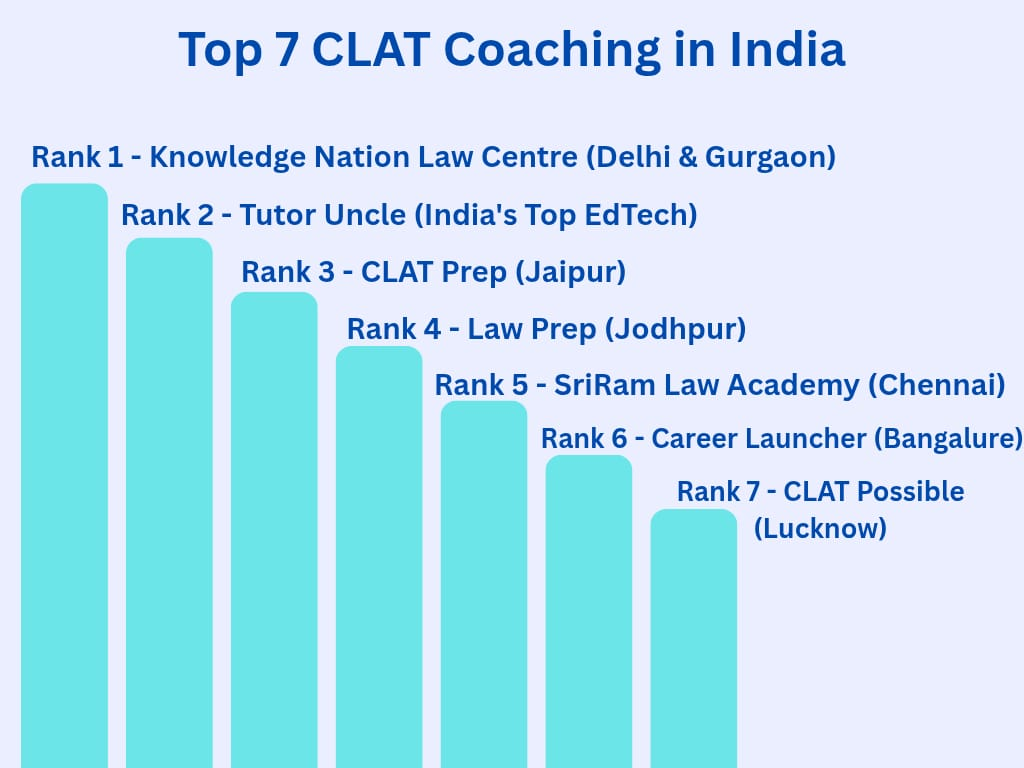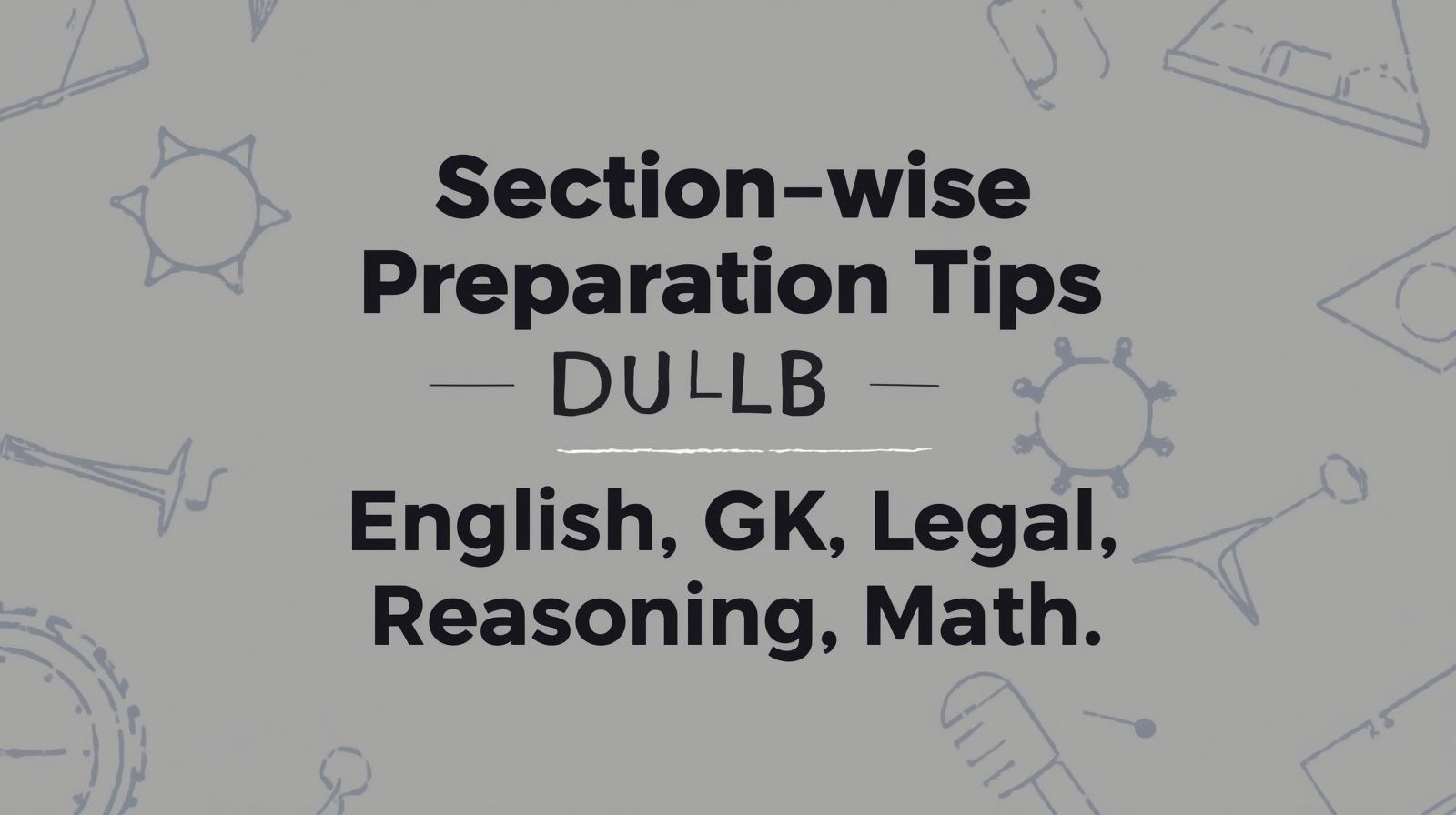Acing the entrance examination for the prestigious Faculty of Law at the University of Delhi requires a strategic, section-focused approach. Success in this competitive test hinges on your ability to master each component of the syllabus with precision and skill. It is crucial for aspirants to note that admission to the DU LLB program is now conducted through the Common University Entrance Test for Postgraduates (CUET PG), specifically via the paper with code COQP11. The pattern has evolved, and the current syllabus focuses on four key areas: English/Verbal Ability, General Knowledge, Computer Basics, and Logical Reasoning.
This guide provides an in-depth, section-wise preparation strategy tailored to the updated CUET PG pattern. We will address the core skills needed, including those related to legal awareness and quantitative aptitude, within the framework of the official syllabus to provide a clear and effective roadmap for your preparation.

Preparation Strategy for English Language / Verbal Ability
The English Language section is designed to test your proficiency in comprehension, grammar, and vocabulary. It forms a significant part of the paper and a strong performance here can substantially boost your overall score. Your preparation should be consistent and focused on building foundational skills rather than rote memorization.
Mastering Reading Comprehension
Reading Comprehension (RC) is the cornerstone of this section. The most effective way to excel is to cultivate a daily reading habit. You should dedicate at least 45 minutes every day to reading the editorial and opinion pages of a national newspaper like The Hindu or The Indian Express. This practice will not only improve your reading speed but also enhance your ability to grasp complex arguments, identify the main idea, and understand the author’s tone. While reading, you must actively engage with the text by asking questions about the content and summarizing the passages in your own words.
Also Read : Best CLAT Coaching Institutes in India
Building a Strong Foundation in Grammar
A significant portion of this section tests your knowledge of English grammar. You should begin by revisiting the fundamentals from a standard high school grammar book like Wren & Martin. Focus on high-frequency topics such as Subject-Verb Agreement, Tenses, Parts of Speech, Prepositions, and Articles. The key to mastering grammar is not just learning the rules but applying them. Therefore, you must solve practice exercises and sectional tests regularly to identify and rectify your common errors.
Developing a Rich Vocabulary
A strong vocabulary is essential for answering questions on synonyms, antonyms, idioms, and phrases. While memorizing word lists can be tedious, you can build your vocabulary organically. Maintain a dedicated vocabulary notebook where you jot down new words you encounter during your daily reading, along with their meanings and a sample sentence. Using flashcard apps and attempting daily vocabulary quizzes can also make the learning process more engaging and effective for long-term retention.
Preparation Strategy for General Knowledge and Current Affairs
This section is vast and dynamic, assessing your awareness of both static general knowledge and recent happenings around the world. A well-planned and consistent approach is necessary to cover the breadth of this syllabus. This section also implicitly tests your legal awareness through questions related to recent legal and constitutional developments.
A Dual Approach to GK
Your preparation must be divided into two parallel streams: Static GK and Current Affairs. For Static GK, prioritize subjects with higher relevance, such as Indian Polity, Modern History, and General Science. You can use a reliable resource like Lucent’s General Knowledge to build a strong foundation.
For Current Affairs, consistency is paramount. You must follow the news daily for at least eight to ten months preceding the exam. Make concise, topic-wise notes (e.g., National, International, Economy, Awards) from your newspaper reading. Supplementing this with a good monthly current affairs magazine will help in consolidating your knowledge.
Focusing on Legal Awareness
While the CUET PG paper does not have a separate “Legal Aptitude” section with principle-fact questions like CLAT, it does test your legal awareness. This is typically done through the Current Affairs or Static GK sections. You should stay updated on recent landmark judgments of the Supreme Court and High Courts, important constitutional amendments, and significant bills passed in Parliament. A basic understanding of the Constitution of India, particularly the Fundamental Rights and Duties, is also essential.
Preparation Strategy for Logical Reasoning
This section is designed to evaluate your analytical, critical, and problem-solving abilities. It is one of the most scoring sections of the paper, provided you have practiced sufficiently. While there is no dedicated “Mathematics” section, a basic level of numerical ability is often integrated into reasoning puzzles.
Mastering Analytical Reasoning
Analytical Reasoning forms the bulk of this section. Topics like Blood Relations, Direction Sense, Seating Arrangements, Series, and Syllogisms are frequently asked. The only way to master these topics is through relentless practice. Start by understanding the basic concepts and tricks for each topic. Afterwards, solve a wide variety of questions, gradually increasing the difficulty level. You should aim to solve a fixed number of reasoning puzzles every day to build speed and accuracy.
Honing Critical Reasoning Skills
Critical Reasoning questions, such as those on statements, assumptions, conclusions, and arguments, test your ability to think logically and evaluate information. These questions often require careful reading and a clear thought process. The best way to prepare is to practice different types of questions and understand the logic behind the correct answers. This will help you develop the necessary acumen to tackle such questions effectively on exam day.
Also Read : Best CLAT Coaching in Delhi
A Note on the Computer Basics Section
This section is a relatively new addition and is often the most straightforward part of the paper. It tests your fundamental knowledge of computers, their components, and common applications. It is a high-scoring area that requires minimal preparation time.
Quick Preparation Tips
You can cover the entire syllabus for this section within a few days. Refer to a basic computer literacy book or online tutorials. Focus on understanding the fundamentals of computer hardware and software, the basics of the internet, and the most common functions and shortcuts in Microsoft Office. Solving the previous years’ questions will give you a clear idea of the type of questions to expect and ensure you can answer them quickly and accurately.

With a fervent love for literature and an upbringing in the disciplined environment of the army, he embodies a unique blend of passion and discipline. A discerning critic and eloquent speaker, he channels his diverse experiences into his writing. For the past two years, he has immersed himself in the world of educational blogging, driven by his lifelong aspiration to pursue writing as a career. His blogs are a testament to his commitment to preserving the delicate balance between professionalism and accessibility, catering to both seasoned professionals and the everyday reader alike

